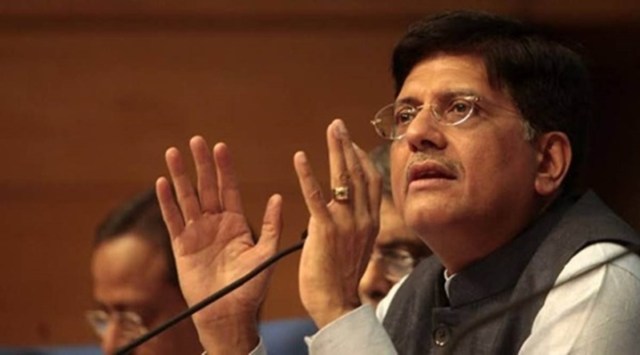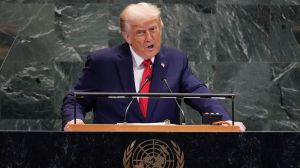FTAs are two-way traffic, get competitive: Goyal to industry
🔴 India is currently in the process of negotiating FTAs with the UK, the UAE, Australia, Israel and the EU.
 Patent waiver proposal by India and South Africa at the World Trade Organization provides a useful way forward to confront some critical health-related aspects of the pandemic effectively, Commerce Minister Piyush Goyal said. PTI
Patent waiver proposal by India and South Africa at the World Trade Organization provides a useful way forward to confront some critical health-related aspects of the pandemic effectively, Commerce Minister Piyush Goyal said. PTICOMMERCE MINISTER Piyush Goyal on Friday told the industry that as free trade agreements (FTAs) are a two-way traffic, Indian consumers should not be forced to buy expensive domestic products in areas where other countries have a comparative advantage.
“FTAs are a two-way traffic. It cannot be one-sided access for Indian goods and services alone,” Goyal said at a virtual session by Merchants’ Chamber of Commerce & Industry, adding the country is looking at reciprocal access, good market conditions, and equitable and fair play in goods and services in FTA negotiations.
India is currently in the process of negotiating FTAs with the UK, the UAE, Australia, Israel and the EU. He added industry should have a greater risk appetite and should look to invest more in labour intensive sectors. “Our focus is wherever we have competitive or comparative advantage, we should look at market access and wherever the advantage is with some other country, we don’t have to force the Indian consumer to buy expensive,” he said, adding India had already given market access in existing FTAs such as those with Japan and Korea.
“In fact, when there will be more access with different markets, hopefully products will be available to us at more competitive prices on which we can do value addition particularly in labor-oriented areas and expand our business,” he said.
Goyal noted that Indian industry would also need market access in other countries for growth once domestic markets get saturated.
India has, however, sought a review of existing FTAs including those with Japan, Korea and ASEAN as India’s trade deficit with these countries has widened after the deals. Experts said Indian industry has not been able to take advantage of market access in these FTAs as it is not competitive enough to be able to increase exports to these nations. Goyal said India was also set to start FTA negotiations with Canada and the Gulf Cooperation Council. He said players had raised concerns about not being able to compete with Bangladesh, Vietnam and others that had zero tariff access to major markets.
Photos



- 01
- 02
- 03
- 04
- 05




























